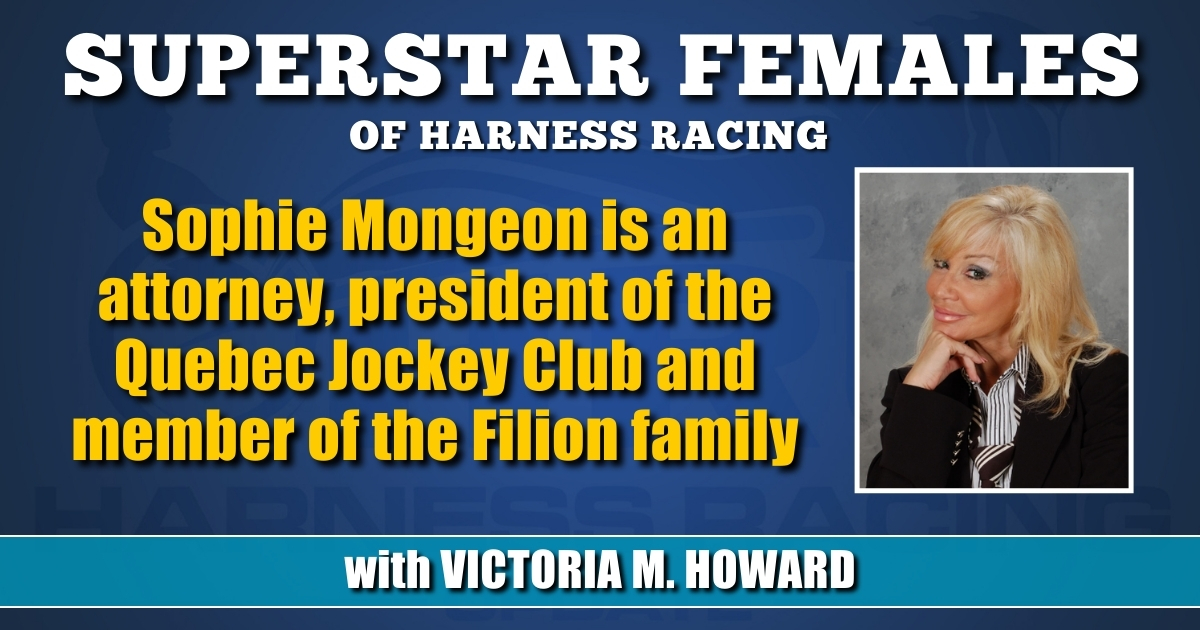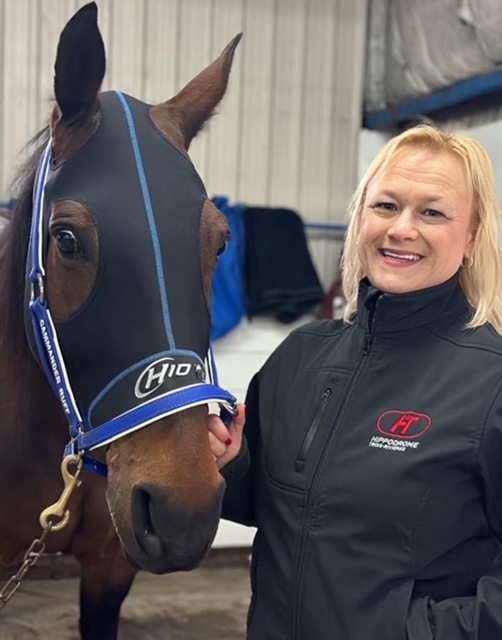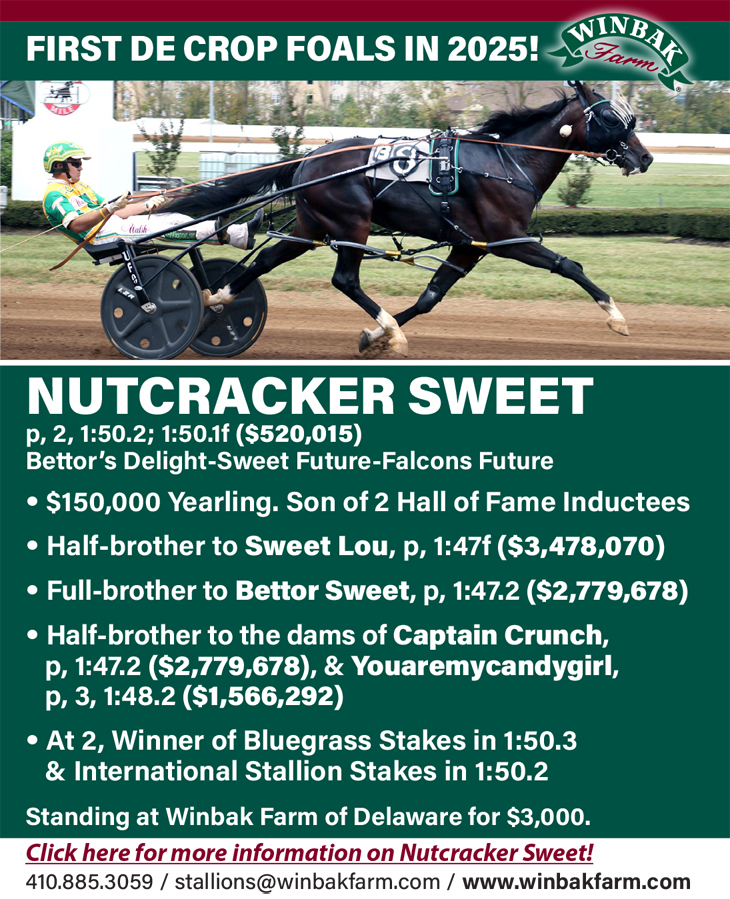
Sophie Mongeon is an attorney, president of the Quebec Jockey Club and member of the Filion family
by Victoria Howard
If you are a fan of harness racing, I’m sure you have heard the name Filion, for the Filion brothers are one of the most iconic families in the sport. At times throughout the decades one and in most cases more of the Filion brothers have lit up the tote board or set a track or world record.
The eight Quebec-born brothers were Gilles, Renald, Marcel, Denis, Yves, Henri, Rheo and last, but not least, the great — and I mean GREAT — Herve have left an indelible mark on our sport.
Herve left school at the age of 13 to drive on the county-fair circuit. In 1961, Herve came to the United States, and by the late 1960s he had taken over as the annual money and race-winning driver. He was certainly gifted, talented and quite a character. The ultimate showman is remembered by many as after winning The Little Brown Jug in 1979 with Hot Hitter, Herve stood up in the sulky seat on his way back to the winner’s circle.
Records show that combined the Filion brothers earned more than $164,465,226 (and growing).
Although Gilles, Denis, and Herve have left this world — hopefully to continue their love for horses and racing in the heavens — several of their children continue their legacy. One is Sophie Mongeon, the daughter of Andrea Filion (sister to the eight brothers) who married Dr. Rejean Mongeon.
In 1968 Rejean was a construction worker who enjoyed spending time around horses. After his passion took over, young Rejean enrolled in vet school, graduated, and moved to St-Hyacinthe to practice his trade.
Growing up as she did, it’s no surprise that Sophie ended up involved in harness racing.
“I was born in 1973 in Buckingham in the Outaouais region,” Sophie said. “My mother Andrea was the youngest Filion. In 1978 our family relocated to New Jersey to my godfather [Herve’s] farm so my father could be near The Meadowlands Racetrack and perfect his knowledge. After a year living there, a tragedy struck; a fire broke out that tragically killed 40 horses, a blacksmith and a groom. Our family then moved to New York where my father worked at Yonkers.
In 1980 Sophie and he mom and dad moved back to Quebec’s Hudson region.
“There was a polo field nearby so I got a job working with the horses there,” she said. “My parent’s ‘dream home’ located in Oka came up for sale after the owner fell and died on the farm. At the time the farm was owned by the Mathers family who owned a quarry on the north shore and owned horses that raced mainly at Blue Bonnets.”
The farm had a half-mile track and a swimming pool for horse rehabilitation.
“We bought the farm in 1989 and the next year there was the Oka crisis,” Sophie said. “Our farm was located in the Reserve and was rampaged. A couple years later, the government bought our farm after the insurance company refused to pay since it was considered an exclusion. That is where I learned to deal with government bodies and how difficult it is to negotiate with insurance companies. That was the straw that broke the camel’s back and when I decided to become an attorney to help people who were in situations like my parents’, dealing with government bodies and insurance companies.
“In 2018, my associate Mrs. Desroches was named judge and I was nominated president of the firm. I began doing interviews on radio and television and eventually had a weekly column on a Sports Radio, 91.9FM. I would comment on sports news, but from a legal point of view.
In 2021, every Sunday in July, Hippodrome 3R was presenting the races at the same radio station.
“I commented on the races, even though I had not been involved in the sport for 20 years,” Sophie said. “I wanted to give it a try since harness racing has meant so much to my family and still have relatives involved, like my cousin Sylvain.”
That same year, Sophie was asked to join the board of directors at The Club Jockey du Quebec, and in December 2023 was officially nominated to the role of president.
“My objective is to get help from the government since we are the only province in Canada that doesn’t receive financial help,” Sophie said. “It is with a lot of pride that we have the only track in Quebec without any subsidies, but it is necessary to renovate our track and increase purses to keep both our two- and four-legged athletes here in our province.”
Sophie said their marketing team has gone all out this year to publicize the sport.
“Since the closing of Blue Bonnets, people think there are no more races, so this year we will have a show called “Trifecta on RDS” [French TSN] and will be going back to announcing programs on the sports station [BPM Sports],” she said. “We also are bringing back the Prix d’Ete to try to get national coverage.
“I am so honored and blessed that the Jockey Club put their trust in me: the first woman ever to preside over a horse organization in Quebec. I’m so excited to see “woman power” at our track, such as Marie Claude Auger and Jessica Turenne, but there is still more room for women in our sport. Our marketing director, Cynthia Theriault, is also a female. Our announcer, Guy Lafontaine, proudly says that our racetrack is directed by the best women in town, an iron fist in a velvet glove. Although it is quite a challenge, I think I have a wonderful team in place at H3R.
“With all their knowledge and abilities, we can bring our wonderful sport back to the hearts of the citizens of Quebec and to propel it back to the top.”
Author’s note: When I co-wrote the book Roosevelt Raceway: Where It All Began, we had a book signing at The Meadowlands. I was so excited to meet my idols in the business such as Carmine Abbatiello, Ben Webster and Herve Filion. They all were wonderful and gracious and I will forever be grateful.













